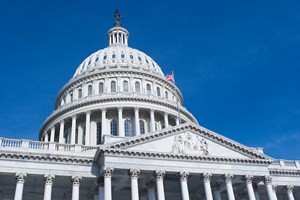INGAA, API Laud Congressional Passage of PIPES Act
The Interstate Natural Gas Association of America (INGAA) and the American Petroleum Institute (API) praised Congress for passing the Protecting our Infrastructure of Pipelines and Enhancing Safety Act (PIPES Act) in the 2021 omnibus spending package.
The legislation enhances pipeline safety, embraces the latest technologies, and aids in the further reduction of methane emissions by modernizing and strengthening the programs of the Pipeline and Hazardous Materials Safety Administration (PHMSA).
“INGAA supports the PIPES Act and applauds the collaborative, bipartisan, bicameral work that got us here today,” said Amy Andryszak, president and CEO of INGAA. “This legislation is the result of years of effort on both sides of the aisle to provide PHMSA with the necessary resources to continue its important work overseeing our nation’s pipeline infrastructure.”
The PIPES Act reflects a number of enhancements that advance PHMSA’s programs for protecting public safety and the environment. Significant provisions include:
- Updates to PHMSA’s leak detection and repair and class location change regulations to enhance public safety while minimizing methane emissions
- Increased funding to federal and state pipeline safety regulatory agencies and new PHMSA workforce development requirements, enhancing job opportunities at those agencies
- Modernized safety regulations covering LNG export facilities and authorization for a new National Center of Excellence for LNG Safety
- Strengthened safety regulations covering local gas distribution systems
- New grant funding for emergency responders, public safety advocates, and community groups
- Creation of a new PHMSA technology pilot program
- Enhanced PHMSA rulemaking and enforcement transparency
“We urge the president to swiftly sign this bill into law, and we encourage the next Congress and incoming administration to continue to focus on bipartisan climate solutions like CCUS, which can reduce GHG emissions from multiple industry sectors and sources and that help build on the progress the natural gas and oil industry is making in improving environmental performance,” API Vice President of Corporate Policy Stephen Comstock said.
The PIPES Act of 2020 was originally introduced by Sens. Deb Fischer (R-Neb.) and Tammy Duckworth (D-Ill.) to enhance pipeline safety and reauthorize PHMSA. The bill was amended to reflect provisions related to further reducing methane emissions from transportation infrastructure and providing PHMSA new rulemaking and inspection resources.
Related News
From Archive

- Glenfarne Alaska LNG targets late-2026 construction start for 807-mile pipeline project
- U.S. water reuse boom to fuel $47 billion in infrastructure spending through 2035
- $2.3 billion approved to construct 236-mile Texas-to-Gulf gas pipeline
- Major water pipe break in Puerto Rico hits over 165,000 customers
- Potomac River Tunnel project enters construction phase beneath Washington, D.C.
- Pennsylvania American Water launches interactive map to identify, replace lead water service lines
- Trump's tariffs drive $33 million cost increase for Cincinnati sewer project
- Utah city launches historic $70 million tunnel project using box jacking under active rail line
- Tulsa residents warned after sewer lines damaged by boring work
- Fatal trench collapse halts sewer construction in Massachusetts; two workers hospitalized




Comments